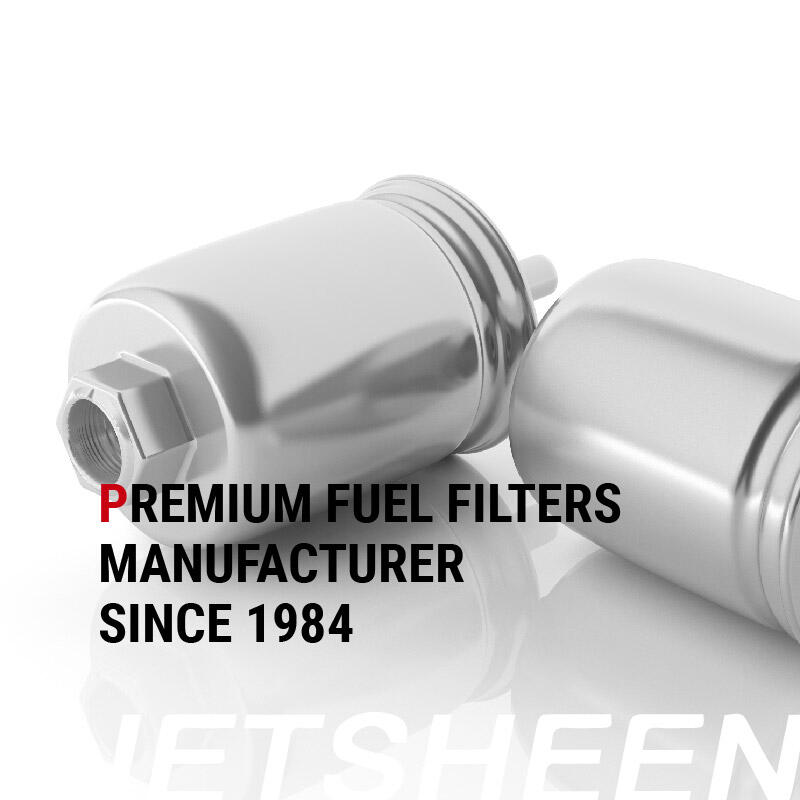What Causes Fuel Filter Failure and How to Prevent It
Fuel filters play a crucial role in maintaining the efficiency and longevity of your vehicle's fuel system. However, like all components, they are prone to failure over time. Fuel filter failure can occur due to several factors, ranging from poor fuel quality to neglecting regular maintenance. Understanding these causes and how to prevent them is essential for keeping your vehicle in top condition.
1. Poor Quality Fuel
The most common cause of fuel filter failure is the use of poor-quality fuel. Contaminants, such as water, dirt, and debris, can clog the filter, reducing its ability to function effectively. Always ensure you’re fueling up at reliable gas stations and avoid low-quality or non-branded fuels. Impurities in the fuel can easily block the tiny pores of the filter, resulting in poor engine performance and the eventual failure of the filter.
When you use fuel that’s not up to standard, particles, such as rust, algae, and other contaminants, will pass through the fuel filter, gradually clogging it. These contaminants build up over time, and if not replaced regularly, the filter will become ineffective. Over time, the pressure on the fuel pump increases, and the engine starts experiencing sluggish acceleration, poor fuel economy, and even stalling. If the issue isn’t caught in time, it could damage other parts of your engine.
2. Wear and Tear
Like any mechanical part, your fuel filter experiences wear and tear over time. The filter gradually accumulates contaminants, which causes it to lose its filtering capabilities. Regular replacements are vital to prevent clogging and fuel flow issues. A well-maintained fuel filter plays a crucial role in ensuring that your engine receives clean fuel, which in turn ensures optimal performance.
It’s important to note that while modern filters are designed to last longer than older models, they still need to be replaced after a certain number of miles. The filter’s material will degrade over time as it filters contaminants. As the filter gets older, the likelihood of it becoming blocked increases, restricting fuel flow to your engine. This lack of fuel could lead to engine misfires, poor acceleration, and higher fuel consumption.
3. Neglecting Maintenance
Skipping regular maintenance is a surefire way to accelerate the deterioration of your fuel filter. Ignoring manufacturer-recommended service intervals and driving with a clogged filter can lead to engine misfires, decreased fuel efficiency, and ultimately, costly repairs. While fuel filters do last a significant amount of time, neglecting to replace them when needed can lead to long-term damage to your fuel system.
By sticking to your vehicle’s maintenance schedule, you not only ensure that your fuel filter is in top condition but also prevent other potential issues with the engine and fuel system. Regular checks, especially if you notice a change in performance or efficiency, will help you catch problems early before they develop into more severe issues.
How to Prevent Fuel Filter Failure
- Use high-quality fuel: Opt for premium fuels to minimize contaminants. Choose branded fuels and avoid cheap alternatives that may not meet the industry standards for fuel quality.
- Replace your filter regularly: Adhering to your vehicle’s maintenance schedule will keep your filter in top shape. Typically, fuel filters should be replaced every 20,000 to 40,000 miles, depending on your vehicle and driving conditions.
- Check for symptoms early: If you notice issues like sluggish acceleration, engine stalling, or poor fuel economy, have your filter checked promptly. These early symptoms may indicate a clogged or malfunctioning filter.
4. Other Preventative Measures
Aside from regular maintenance and using high-quality fuel, there are other preventative measures you can take to ensure that your fuel filter continues to operate efficiently. These include:
- Fuel System Cleaner: Regularly adding a fuel system cleaner to your fuel tank can help break down accumulated dirt and debris within the filter, allowing it to perform better.
- Monitor Your Driving Habits: If you often drive in dusty areas or over long distances with constant idling, it’s a good idea to replace your filter sooner than scheduled.
- Check Fuel Tank: Periodically check your fuel tank for water or debris, as it can lead to faster filter clogging.
Fuel filter failure can be avoided with just a bit of care. Ensure you maintain regular checks, use quality fuel, and replace your filter on time. Your engine will thank you.



